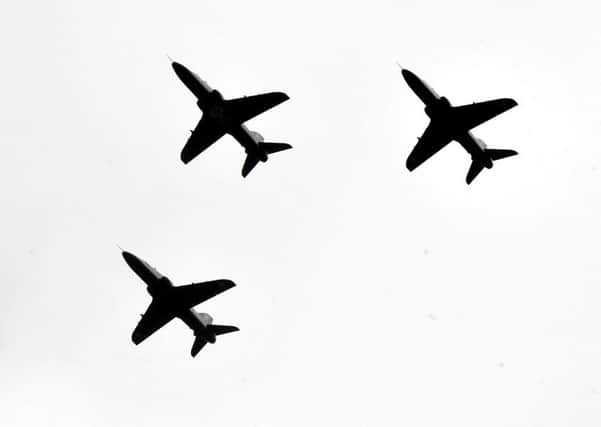Cuts threaten Government's '˜first duty'


To fulfil this duty now involves many organisations and includes the defence force, police and security services.
This is a subject of the utmost complexity in a rapidly changing world and is becoming a cause for serious concern for those tasked with keeping us safe.
Advertisement
Hide AdAdvertisement
Hide AdWhen I left this country in 1975 the strength of the UK Defence Force was 338,000 (5.5 per cent of GDP). When I came back in 2010 it had fallen by over a third, and it has subsequently continued to shrink to a point where we now have less than half the 1975 figure. We only manage to meet the NATO target of two per cent of GDP by including pension costs.
Sir Richard Barrons, the former Chief of the UK Joint Forces Command, said: “We have reached the point where we risk losing the ability to protect British citizens in times of great jeopardy.”
We couldn’t even hold our own back in the day when we had more manpower – forced to relinquish Basra in Iraq and pulling out of Helmand in Afghanistan where the Americans had to take over.
In the First Iraq War General ‘Storming’ Norman Schwarzkopf launched Operation Desert Storm with more than 500,000 troops under his command, so militarily speaking at least, size does matter.
Advertisement
Hide AdAdvertisement
Hide AdThe number of registered hairdressers in the UK now exceeds the total of our armed forces.
I know that we are using greatly enhanced technology platforms to fight from, and everything from personal kit to aircraft carriers has improved almost beyond recognition. Yet in many projected scenarios, such as Putin sending Russian troops into the Baltic States, it may well come down to the number of boots on the ground.
Potential major conflicts are brewing in the Middle East and Far East, and the problems in Africa will require men, rather than machines.
The new Type 45 destroyer can, apparently, simultaneously track, engage and destroy five times more targets than the old Type 42 it replaced, but it is still only one ship, especially if someone manages to sink it.
Advertisement
Hide AdAdvertisement
Hide AdThe new destroyer was also found to have a minor mechanical fault in that its gas turbine engines cannot operate in warm water, like the Middle East.
The Navy now has fewer ships than the task force deployed by Margaret Thatcher to the Falklands.
The new Lockheed Martin F-35 multi-role fighter, the future backbone of the RAF, is more than $160billion over budget and seven years behind schedule. It has been plagued with design faults and crew safety concerns.
And guess which aircraft will be deployed on our new Queen Elizabeth class aircraft carriers when they are eventually operational? The F35.
Advertisement
Hide AdAdvertisement
Hide AdSir Michael Fallon had to resign because of ‘kneegate’ and was replaced as Defence Secretary by Gavin Williamson, who has no previous experience of running any department, but who has consistently voted against the military covenant to treat servicemen and their families fairly.
In ‘Part Two’ I will look at the perilous effects of the continued cuts to police budgets and the consequent decline in service, also how the ‘inmates have taken over the asylum’ at some of our prisons and why the Department For International Aid, with a budget of one third of the defence force, provides taxpayers’ money to six out of 10 of the world’s most corrupt countries.
If only we had a strong and stable Conservative Government to keep us safe... hang on a minute though!